Self-Determination is the Way to Freedom and Peace
It’s easy to understand why a lot of people feel like victims when companies are bought, sold, downsized, rightsized, re-engineered, restructured, and otherwise re-configured for reasons that seem to cater to the privileged. At the same time, people are hired, advanced, and given special assignments for reasons that appear absolutely mystical.
If you’ve ever been caught in one of these corporate change scenarios, you know the uncertainty it brings. In addition, you may have been treated in a manner that was highly offensive to you. I’ve heard stories from people who felt they were lied to, shuttled around like pawns, promised things that never materialized, and discarded like used ink cartridges. The hurt they expressed is palpable.
No wonder talk of loyalty is met with derisive laughter. No wonder the cynical advice of popular magazines is to toughen up, move freely and without emotion from employer to employer, and negotiate the very highest wages possible to protect against the vagaries of unpredictable corporate change. In another more stable time, such advice might have been considered unduly pessimistic and maybe just plain wrong. But that was then and this is now.
In the midst of this corporate maelstrom, many ask: Who is to blame? Who lost control? Who started all this chaos and when do they expect it to end? Why can’t our leaders take control and settle things down? The fact is that much of what we struggle with in business today cannot be controlled or settled.
What can be done?
Accept that business is free-forming itself in many ways. Technology, worker demographics, and new ideas about balancing work and family have changed traditional business ideas permanently. Additional pressures are driven by increasingly intense global competition, shareholder demands for continued growth, fickle customer demands, and an incredible array of external influences. Expecting a predictable, controllable environment is simply unreasonable.
Determine how much variability you can tolerate. In some industries, change occurs at warp speed. In others, it’s a bit slower. Technology is a driver of speed, but there are other factors as well. Worker demographics. Marketplace demands. Scientific and academic discovery. Oddly, even the celebrity status of a particular industry can drive the speed and direction of change.
Assess—fairly, objectively, and completely—your own collection of professional assets. Document your skills, education, personality traits, professional background and associations, experience, aspirations, motivations, and the lessons you’ve learned. Take some time with this; you may be surprised by the richness of you.
Decide what is important to you. If it is keeping up with cutting edge ideas or gaining front-page press coverage, fine. If it is creating something new and exciting, great. If it is finding stability and relative peacefulness, terrific. The point is to determine what matters to you. Forget about what your buddies or the neighbors say you should think or want. This isn’t about living their lives, it’s about living yours.
Finally, determine your path. Stop wasting time wondering how things got so messed up and when they’re going to become more normal. Give up trying to find someone to blame for your discomfort or unhappiness. Stop looking outside yourself for an answer to an internal question. When you clearly understand what’s important to you and what you have to offer, get busy finding a place to call your own. Never mind what others think. Don’t worry about what others are doing. Chart your own course and focus on it. Get help if you need it.
You may wonder how you’ll ever do these things when you’re so exhausted worrying about tomorrow’s meeting or whether you’re going to get the raise you were promised or if the information about your company in last night’s newspaper was accurate. Quit it! As long as you expend your energy worrying about this stuff, you’ll never get around to helping yourself in positive, strength-producing ways.
As William James said more than 100 years ago, “There is no more miserable human being than one in whom nothing is habitual but indecision.” Ain’t it the truth?
Self-determination is about making your own decisions. It requires gathering information, reflecting upon it, debating it, coming to grips with it, and then deciding what to do with it. It’s an incredibly rewarding process if you have the guts to stick with it. It will give you freedom and peace, even happiness, when little else can.
Categories: Inspiration